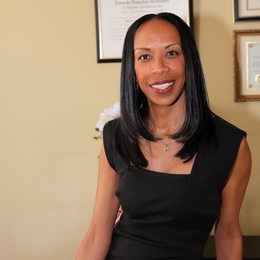
Divorce, by its very nature, is a hardship to survive, a crucible to endure. Even so, it doesn’t have to be a fractious, drawn-out battle characterized by bitterness and contempt. There is a better way, according to Tiffany Thomas Smith, a family law attorney and the founder of The Thomas Smith Firm P.C. in Yardley.
It’s called collaborative law, and it requires divorcing couples and their respective attorneys to enter into a participation agreement that, among other things, includes a pledge to stay out of the courtroom. Developed in the United States by attorney Stuart G. Webb, collaborative law helps clients focus on the future, not ruminate on the past. Thomas-Smith considers collaborative law akin to couples working together peacefully so they can be part on their own terms and keep the family intact.
“It is an alternative for clients who want to preserve their assets, maintain their integrity and maintain their choices,” says Thomas-Smith, current president of the Bucks County Collaborative Law Group (BCCLG), an alliance of collaborative law professionals founded in 2009. “It is a more evolved solution, and I think that is why I am getting more collaborative cases every year.”
In collaborative law, divorcing couples work with an interdisciplinary team of professionals, each with his or her uniquely defined role. The team includes not only the couple’s respective attorneys but also a child specialist, a divorce coach and a financial neutral, meaning a specialist who can ensure preservation and equitable distribution of the parties’ assets.
Ancillary members of the collaborative team may also include realtors, insurance brokers and credit counselors, among others—essentially, any professional who might provide assistance during the divorce process or after the marriage has ended. In most cases, the approach may result in lower overall costs, reduced stress and, ultimately, families that are better equipped to move forward in a productive manner.
“In a traditional divorce, people do not have a lot of support emotionally, and they sometimes feel they will not be able to survive it, or that their family is going to be irreparably divided,” says Thomas-Smith, who earned her Juris Doctor from the Howard University School of Law in Washington, D.C., and received her collaborative law training in 2012. “In collaborative cases, people have a coach to help hold them up emotionally, and they have a financial professional to assure them they are going to survive this financially. It gives you so much more confidence that can help people flourish after what many people consider an emotional death. They might not be reborn in that moment, but they have planted the seeds to help them recover after the thaw.”
Thomas-Smith suggests the team-based approach does necessitate a certain level of cost. Even so, she says the additional support tends to yield significant dividends in terms of resolution and peace of mind.
“As an attorney, I can look at someone’s finances, and I can make recommendations for you on any front,” she says. “But if I suggest bringing in a professional to specifically address the financial aspects or the emotional aspects, it’s likely going to render a better result. Regarding costs, you’re talking about a retainer for the attorney, a retainer for the divorce coach and maybe a retainer for the financial person, but I’m confident those investments on the front end can achieve the best result, and they far outweigh the risks taken by going down the unknown path of litigation.”
Not every client is well suited for collaborative law, in which case The Thomas Smith Firm can provide representation to litigate the case in court. Regardless of the scenario, Thomas-Smith considers herself an adviser whose duty it is to “fully inform, educate and advocate for” her clients.
“Collaborative law is not for everyone,” she says. “If two people are not on the same page, it won’t work. If their goal is to destroy the other person, it won’t work. But every attorney I work with who has invested in collaborative law has made the paradigm shift from being fully focused on litigation and the one-sided modality of ‘win-lose’ to being focused on a ‘win-win,’ where each party in the divorce wins and, in many ways, you as the attorney win as well because you don’t have a lot of the hostility [as seen in a traditional divorce].
“Collaborative divorce isn’t easier,” she continues. “It isn’t less expensive. It isn’t fun. But it is an alternative that proves that divorce doesn’t have to destroy a family. It can help you maintain your integrity, consider the needs of the family and preserve what you worked so hard to build.”
The Thomas Smith Firm P.C.
780 Newtown-Yardley Road, Suite 310-A
Newtown, PA 18940
215-860-3747
www.thomassmithfirm.com
For more information on the Bucks County Collaborative Law Group, visit www.buckscountycollaborativelaw.com.
Photograph by Rob Hall


